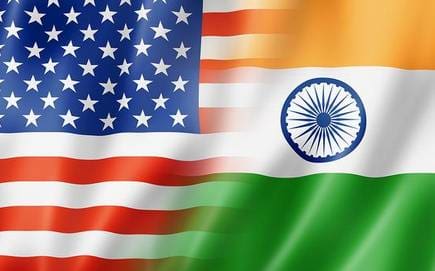The decision is likely to be notified by June 16
Tariffs on apples, almonds, shrimps, chickpeas, boric acid and some other items imported from the US are set to go up as the government has finally decided to impose retaliatory duties worth over $200 million on 29 products, a government official has said. The proposed action, which comes a year after the notification for the duties was first drafted in June 2018, is in response to penal duties imposed on Indian aluminium and steel at 10 per cent and 25 per cent, respectively, by Washington last year.
“The retaliatory duties on American items are likely to come into effect after June 16, as the government, last month, had postponed implementation of the duties till that date,” the official said. The retaliatory duties will be notified by the Department of Revenue once approved by the Finance Ministry. The Commerce & Industry Ministry, which has proposed imposition of the retaliatory tariffs, has already got the approval of the Ministry of External Affairs for the imposition. India had announced retaliatory tariffs worth $230 million on 29 American goods in June last year. New Delhi has since been postponing implementation of these duties hoping to resolve trade concerns, including the proposed withdrawal of the Generalised System of Preferences (GSP) by the US.
GSP benefits withdrawn
Washington, however, withdrew the GSP benefits from India on June 5, 2019, which may have prompted the government to finally put the duties in place. Interestingly, many other countries such as Turkey, Canada, the EU, Mexico and China, who were also at the receiving end of the tariffs on aluminium and steel, had imposed retaliatory duties against the US several months back. With many of the countries that have retaliated Washington has struck an agreement and agreed to roll-back the penal tariffs. India’s proposed move to put in place retaliatory tariffs comes just a few days ahead of the scheduled visit of US Secretary of State Mike Pompeo, who is expected to discuss defence and trade issues with Minister of External Affairs S Jaishankar. Pompeo and Jaishankar face the challenge of ironing out a number of thorny issues such as the withdrawal of the GSP scheme, the negative fall-out of the US curbs on purchase of Iranian oil by India and New Delhi’s decision to go ahead with the deal with Russia to purchase S-400 missile defence system.

